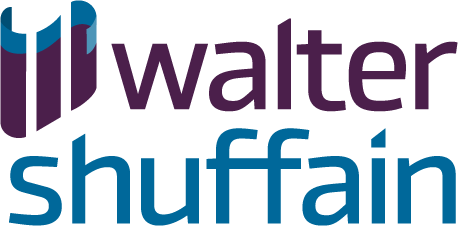Written by: Jonathan Hitter, CPA, MST, CGMA
You may be wondering about your tax return or refund status and worry the IRS’ backlog will impact you. You’re not alone.
The IRS reports it had received 91.26 million 2021 tax year returns and had processed 89.27 million through the week ending April 1, 2022. As of late December 2021, the IRS had about 10.5 million returns to process from 2021. The agency also suspended and reviewed 35 million returns with errors primarily because of new or modified tax credits last year, further adding to the backlog.
The agency continues to work through the backlog and has made efforts to speed up processing, but myriad factors, including new and one-time federal tax initiatives, make navigating the 2022 filing season frustrating.
What Led to the Backlog?
Many trace the backlog’s start to COVID-related quarantine orders, which forced the IRS to stop handling mail, including tax returns, tax payments, and amended returns. It also slowed or nearly stopped the IRS from responding to calls, emails, and sending notices.
The agency’s correspondence inventory grew from 5.9 million by the end of the 2021 filing season to more than 8 million in January 2022, according to a U.S. Government Accountability Office (GAO) report issued April 11. For comparison, the backlog was 2 million in 2019. The report also revealed the IRS received 195 million calls during the 2021 filing season compared to 39 million in 2019. That backlog in communications led to taxpayers submitting information to their tax professionals later than normal as they waited to hear from the agency.
The stoppage also impacted paper tax returns that already were in process at varying stages of review. Other factors include budget cuts that forced the IRS to reduce staff and new initiatives, such as stimulus payments and the expanded Child Tax Credit.
How Can I Navigate the Backlog?
There are four main ways to navigate the current backlog and ensure smoother filing seasons in the future:
- E-filing: The bulk of the IRS backlog comes from paper-filed tax returns, especially those that are incomplete or have errors a human needs to review further. While testifying before a Senate Finance Committee meeting, IRS Commissioner Charles Rettig said the agency processes returns on a first-in, first-out basis. Since the IRS continues to process 2020 tax year returns, he said taxpayers who choose to file paper returns this year end up at the end of that particular stack.
- Share (complete) copies of IRS correspondence with your tax preparer. Many taxpayers receive a notice from the IRS and snap a photo or scan just the first page and send it to their tax advisor, but IRS notices and letters can highlight problems the IRS has identified in your tax return and specific instructions on responding to and/or resolving the issue. Tax professionals have access to a unique IRS customer service line reserved for practitioners, but delays are common there as well, so don’t wait until the last minute to loop them in.
- Have patience. Know the Walter Shuffain team is doing its best to work as quickly and accurately as possible to complete your tax return. If we’ve extended your return, trust us when we say, we don’t like extending returns any more than you do.
How Is the IRS Resolving the Backlog?
The IRS has made several changes this filing season to improve the workflow, which IRS Commissioner Charles Rettig outlined in mid-March. Corrective measures include, but are not limited to:
- Changing Schedule K-2 and K-3 reporting requirements so eligible entities will not have to file the new schedules for tax year 2021.
- Suspending notices where the agency credited taxpayers for payments but has no record of the tax return being filed. The agency also suspended more than a dozen additional notices, including automated collection notices normally issued when a taxpayer owes additional tax or has no record of filing a tax return.
- Creating and expanding self-service portals for taxpayers to implement an online payment agreement, request payment transcripts, request an Identity Protection Personal Identification Number (IP PIN), and update their personal information to reduce call volume.
The good news is the IRS is working to catch up. In the meantime, stay in touch with your tax advisor to be as proactive as possible.
